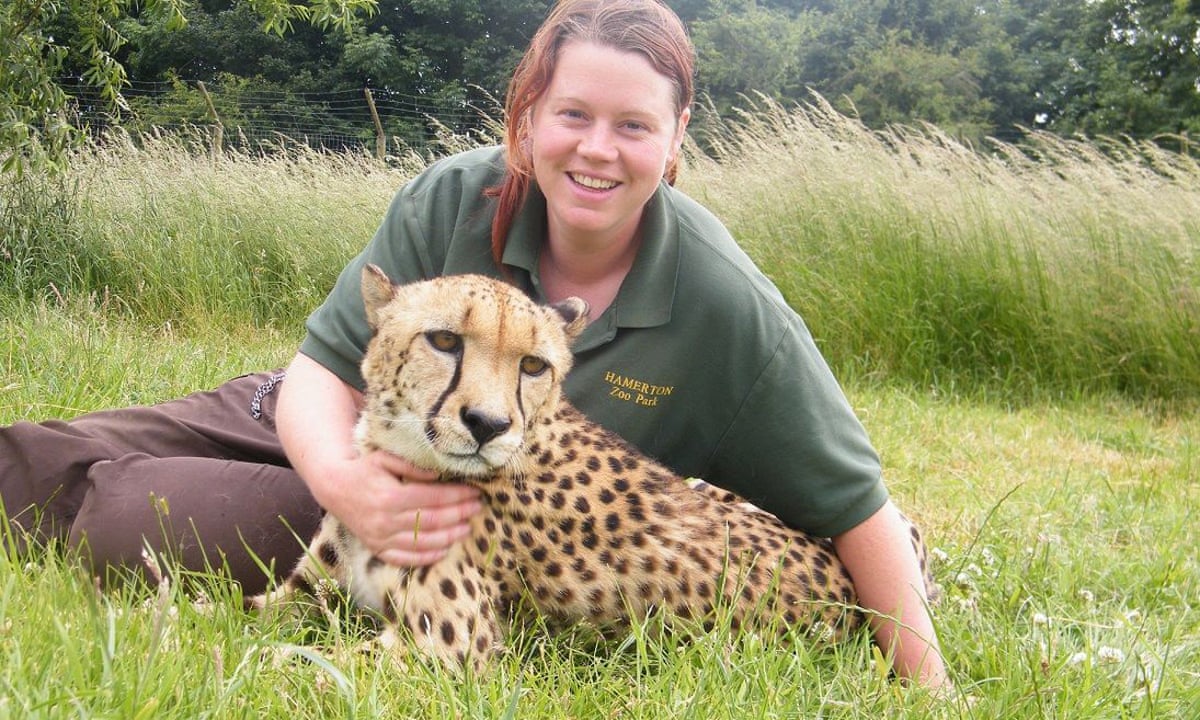How To Become A Zoo Keeper?
페이지 정보
작성자 Eugene 작성일25-02-25 05:52 조회12회관련링크
본문

"The success of a country and its moral development can be evaluated by the way its animals are treated." - Mahatma Gandhi
Do you love animals and dream of working in a zoo? Zoo keepers are key in safeguarding wildlife and caring for zookeeper animals. At locations like the Zoological Society of London (ZSL), over 20,000 animals get the care they require from professionals.

To become a zoo keeper, you need effort, education, and a love for animals. This job is interesting, letting you deal with many species and assist with essential conservation work. If you're into wildlife or animal welfare, zookeeping might be perfect for you.
Beginning your zoo keeper profession implies discovering what's required. This guide will cover education, experience, and more. It's all you need to know to start a satisfying zookeeping profession.
Understanding the Role of a Zookeeper
Exploring what a zookeeper does exposes a role filled with obstacles and rewards. They concentrate on animal welfare and preservation. Zookeepers work hard to keep animals healthy and delighted in their care.
Daily Responsibilities and Tasks
A zookeeper's day is filled with important tasks:
- Preparing meals that fulfill each animal's nutritional requirements
- Cleaning enclosures to keep them clean and safe
- Watching over animal health and behaviour
- Giving medicines and treatments as needed
- Creating activities to keep animals mentally sharp
Workplace and Conditions
Zookeepers work outside in all type of weather. They handle both indoor and outdoor areas. The task requires being healthy and able to handle the demands of looking after animals.
"Being a zookeeper is more than a task - it's a passionate dedication to animal care and conservation."
Types of Animals and Specialisations
Zookeepers can specialise in numerous animal groups:
- Primates
- Big cats
- Marine mammals
- Reptiles
- Birds
Your role might involve working with 2-5 different animal species. This needs a lot of knowledge and the capability to adapt.
Important Skills and Personal Qualities for Zoo Keeping
To be a top zookeeper, you require more than simply a love for animals. Your job will be difficult and require you to deal with animals and people well. You'll also require to understand animal behaviour.
What zoos try to find in individuals consists of:
- Exceptional perseverance and psychological resilience
- Strong physical fitness and stamina
- Keen observation skills
- Capability to stay calm under pressure
- High level of empathy towards animals
Getting hands-on experience is key to mastering this role. You'll require to reveal:
- Advanced understanding of animal care methods
- Efficiency in animal handling and security protocols
- Efficient interaction with both animals and human visitors
"A terrific zookeeper connects science, compassion, and conservation in every interaction with animals."
You need to know about animal nutrition, behaviour, and fundamental veterinarian care. The majority of zookeepers learn through training, offering, and ongoing knowing.
Zookeeper work is not simply a job. It's a big dedication to teaching about wildlife and helping preservation. Your enthusiasm and effort will make you stick out in this fulfilling profession.
How to Become a Zoo Keeper
Starting a profession as a zookeeper needs careful planning and education. You should initially comprehend the academic needs and training paths. These will turn your love for zookeeper animals into a job.
Educational Requirements
To be a fantastic zookeeper, you require a strong academic base. A lot of jobs search for particular certifications:
- At least 5 GCSEs at grade 4 or above, including English, mathematics, and science
- A levels or college qualifications
- A college degree in biology or animal science
- Level 3 Diploma in Animal Management
Essential Certifications
Getting special certifications can actually help you in your zookeeper profession. Important ones include:

- Diploma in Management of Zoo and Aquarium Animals (DMZAA)
- Zookeeping Level 3 Diploma (RQF)
- Animal managing certificates
- Emergency treatment credentials
Training Programs and Apprenticeships
Getting hands-on experience is type in zookeeper training. Many places provide terrific chances:
- Unpaid apprenticeships at wildlife parks
- Internship programs at well-known zoos
- Practical training at locations like Colchester Zoo and Dartmoor Zoo
- Volunteering to acquire real-world skills
Pro tip: Create a detailed portfolio to reveal your animal care skills. It will help you in job applications.
Building Relevant Experience in Animal Care
Getting hands-on experience is essential for those wanting to be zookeepers. The job is extremely competitive. So, it's important to start building a strong base in animal care.
Your journey begins with discovering methods to work directly with animals. This is a strategic step.
"Experience is the best instructor in animal care" - Wildlife Conservation Experts
Here work methods to gain experience working with animals:
- Volunteer at regional animal shelters to establish standard animal managing skills
- Look for internships at wildlife rehabilitation centres
- Explore part-time positions at veterinary centers
- Contact your local zoo for possible volunteer chances
Volunteering is a fantastic way to learn more about animal behaviour and care. Many zoos and animal shelters are trying to find individuals who want to find out. These locations offer terrific chances to get hands-on experience and show your commitment to animal welfare.
Here are some pointers to maximize your experience:
- Keep a record of your abilities and interactions
- Connect with professionals in animal care
- Ask for references and letters of recommendation
- Stay consistent and zookeeper show your real passion
Keep in mind, practical experience makes you stand apart in the zookeeping world. Whenever you deal with animals, you discover more. This increases your opportunities of getting a job in animal care.
Career Pathways and Professional Development
Beginning a career as a zookeeper is interesting. It provides many possibilities to grow and specialise. Your journey starts with comprehending the various paths in this field.
Entry-Level Positions
Entry-level tasks in zookeeping are a fantastic start. They offer you hands-on experience. Zoos look for prospects with:
- Level 2 Diploma in Animal Care (minimum qualification)
- GCSEs in English and a clinical subject
- Volunteer experience at animal shelters or farms
Profession Progression Opportunities
As you get experience, your profession can grow. You can move up to:
- Junior Keeper
- Senior Keeper
- Group Leader
- Expert Roles
"Continuous knowing and useful experience are key to advancing in your zookeeping career."
Specialised Roles
You can likewise choose unique areas like:
- Conservation reproducing programmes
- Animal training
- Wildlife research study
- Educational outreach
About 25% of zookeepers get advanced degrees in zoology or animal preservation. Getting Level 4 qualifications can increase your possibilities for senior roles and research study.
Working Hours and Physical Demands
Ending up being a zookeeper implies you'll work more than simply routine hours. You'll deal with tough physical challenges and need to be flexible, including weekends and holidays. Zoos are open every day, so you'll often work when others unwind.
"Zoo keeping is not a typical 9-to-5 job-- it's a way of life of devoted animal care and commitment."
This task is physically demanding. You'll work outside in any weather, raising heavy items over 50 pounds. Your jobs might consist of:
- Early early morning feeding schedules
- Cleaning animal enclosures
- Preparing specialised diet plans
- Carrying out medical examination
- Keeping complicated habitats
Shifts can start as early as 5 AM and go late into the night. You'll be on your feet most of the time, moving in between animal zones. Weekends and holidays become part of the task, needing great deals of stamina and dedication.
In spite of the obstacles, this task has fantastic benefits. You'll grow strong, both physically and mentally. You'll likewise make amazing connections with unbelievable animals.
Health And Wellness Considerations
Being a zookeeper features its own set of obstacles. It's important to understand how to keep both animals and zookeeper staff safe. This suggests following rigorous health and zookeeper wellness guidelines.
Zookeepers deal with a distinct environment where safety is essential. Research studies show that health and safety are now as essential as the zoo's primary work.
Threat Management Strategies
There are several methods to handle dangers in zoos:
- Daily checks of animal enclosures for risks
- Counting animals at the start and end of shifts
- Viewing how visitors act near animals
- Being ready for emergencies
Animal Handling Safety Protocols
Knowing which animals are most dangerous is vital. Big animals like rhinos can be extremely dangerous. There have been cases where zookeepers got seriously hurt.
Security isn't just about wearing gear - it's about knowing animal behaviour and staying alert.
Personal Protective Equipment
Zookeepers require to wear the ideal equipment, including:
- Special gloves for dealing with animals
- Strong shoes for grip and security
- Clothes that protects against germs
Getting vaccinated versus illness like liver disease B and rabies is also crucial. It assists keep zookeepers healthy in their tough job.
Wage Expectations and Job Market
Thinking about a profession in zoo keeping? It's important to know about incomes and the task market. The field is growing, with more chances in the UK.
Let's look at what zoo keepers can earn at various stages:
- Entry-level zookeepers begin at about ₤ 14,000 a year
- ones make in between ₤ 16,000 and ₤ 22,000
- Senior zookeepers can make as much as ₤ 30,000 or more
The task outlook for zoo keepers is great. The sector is anticipated to grow by 5% in the UK by 2029. This suggests around 3,910 new jobs will be available.
"The Association of Zoos and Aquariums supports professional growth for zoo keepers," a report says.
Salaries vary based upon several things:
- Experience level
- Specialisation
- Where you work
- The zoo's size and type
While the pay may not be high, the joy of dealing with animals is valuable. The typical salary is around ₤ 17,000. But, total profits can be between ₤ 13,000 and ₤ 27,000 a year.
Conclusion
Starting a career in animal care is an exciting journey. It requires commitment, enthusiasm, and a love for learning. With over 350 zoos and wildlife locations in the UK, there are many task chances. You'll get to deal with remarkable animals and help secure wildlife.
To be a zoo keeper, you require more than just love for animals. You should have a mutual understanding of biology, be able to interact well, and constantly wish to learn more. You'll gain hands-on experience, discover animal welfare, and develop a deep respect for nature. About 3,000 people in the UK have actually discovered satisfying careers in this field.

Your success in zoo keeping comes from blending science with a love for animals. Whether you're interested in mammals, birds, or marine life, this job lets you assist with preservation. Every day will bring brand-new obstacles and finding out chances that will enhance your skills and knowledge.
If you love animals and wish to assist protect wildlife, zoo keeping might be for you. Handle the difficulty, remain curious, and turn your enthusiasm for animals into a gratifying career.
댓글목록
등록된 댓글이 없습니다.







